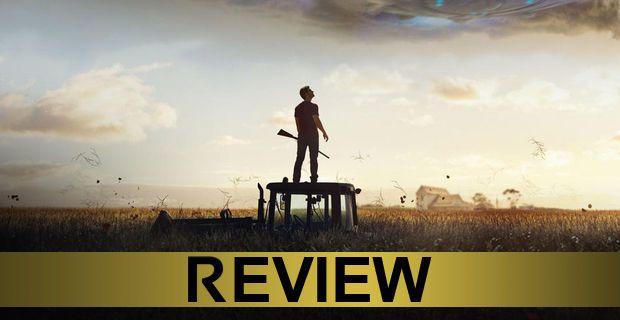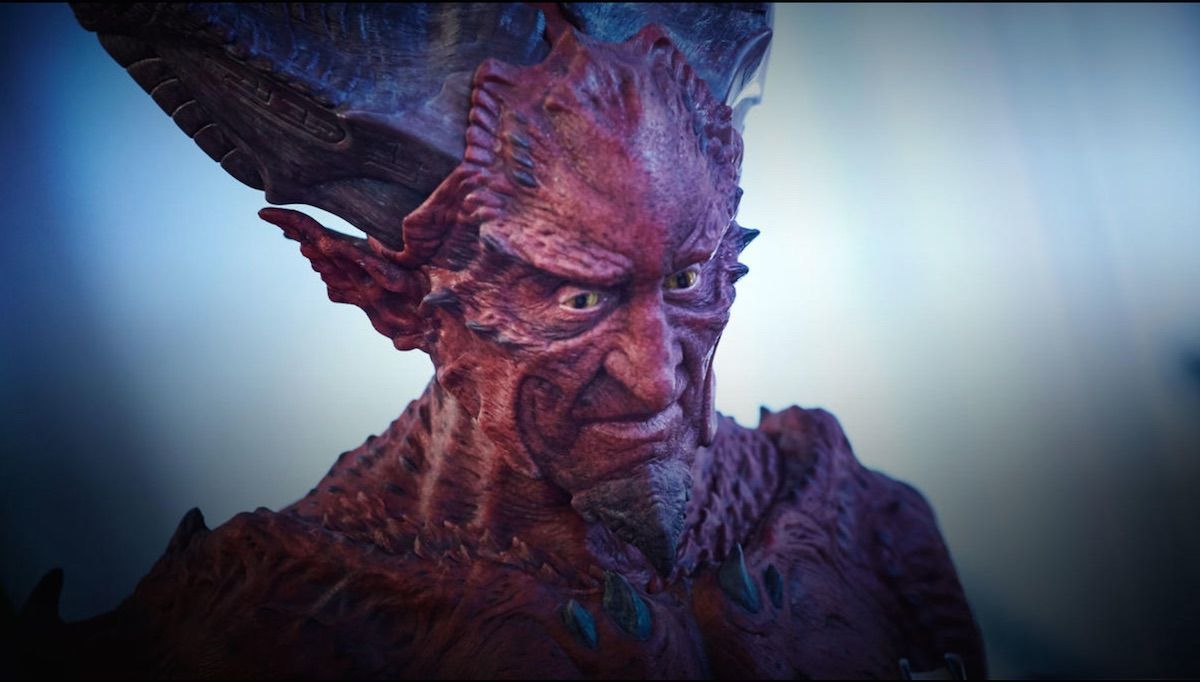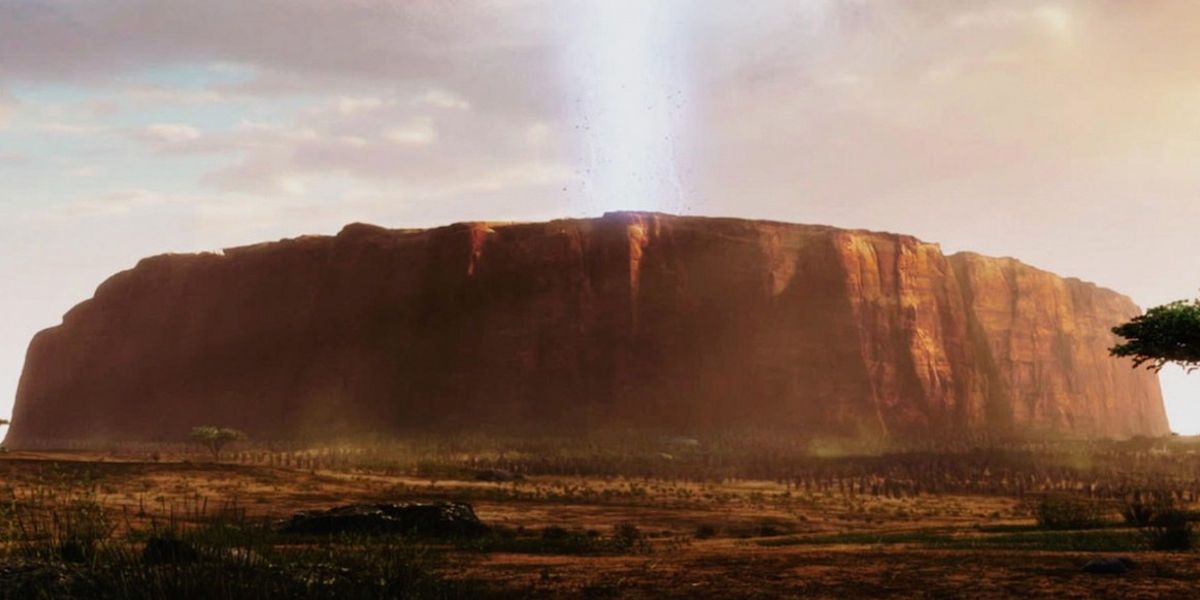[This is a review of Childhood’s End Night Three. There will be SPOILERS.]
-
The last installment of Childhood’s End sprinted toward the finish with style. While the first acts moved at a paced but steady rate, the final act picked things up and took the story off Earth and into the cosmos. The end result is the wide-eyed conclusion there never really was any hope for mankind.
Starting another four years after the ending of 'The Deceivers,' the Greggson family has somewhat accepted their daughter Jennifer is a bit... different. The children of Earth born after Karellen and the Overlords arrival are considered the next evolution of humankind -- stronger, faster, healthier, and in possession of psychic and telekinetic powers. There must be something to the Utopian water because no one seems to age over the course of the 23 years the story spans, with the exception of Milo.
The story was always building to a much larger place, and the time has arrived. Like a timer that finally counted down to zero, the children of the planet suddenly turn to Jennifer Greggson. They stand zombie-like outside her home. Jake Greggson takes it as a sign it’s finally time to move the family to New Athens, the last city free from the Overlords influence. Here exists art, traffic, disease, and clothes that aren’t in neutral colors.
As such, the final two hours briefly introduces Jerry Holcross, the self-appointed mayor of New Athens, who has taken an interest in the Greggsons. Nothing really comes from their interaction and to be frank, Jerry’s entrance in the story comes a little too late to really care when he plays a specific role in New Athen’s fate later on. The Golden Age of Man comes to an end, as the children of Earth float to the Heavens at Jennifer’s command.
But that's just part of the finale, as Ricky’s story has to be wrapped up as well. He’s managed to hang on for four years while the alien infection weakened him. In a a final act of benevolence, Karellen escorts Ricky to the Four Seasons hotel suite to spend out his last moments with the vision of deceased wife Annabel (Georgina Haig). While the sequence offers a glimpse at Ricky’s two great loves at the end of his life, it goes on for far too long and ultimately feels like filler to round out the remaining story. In the end, Ricky gives Ellie the closure she needs and passes, his role with the Overlords complete.
In the end, it is Milo’s story that pulls the final chapter back into focus and gets the plot back on track. After an encounter with Jennifer, Milo convinces Rachel to vacuum seal him with a shipment of animals to the Overlords’ home world, even though the decision means he’ll never see her or possibly Earth again. As has been the case throughout the miniseries, the visual effects here are spectacular. It’s hard to look away as Milo hovers over the alien planet of fire. The effects look like a rich fantasy painting.
The last third of the act finally reveals the mastermind behind the strategic taking of Earth -- The Overmind. Even the Overlords are pawns to the Overmind’s will. The Overmind, the consciousness of the universe, struck me like A Wrinkle In Time’s It, using telepathic powers to overtake the children but, in comparison, without the sinister intentions. Although since A Wrinkle In Time came out after Childhood’s End original publication, maybe It was inspired by the Overmind.
Childhood’s End pleasantly surprised in the end, shifting away from religion and asserting the destruction of the planet was an inevitable evolution -- not good or evil, but a stage in life and death. The Overmind isn’t God, but instead the joined voices of the collective universe. To move into the next phase of existence as part of the universe, the Earth has to die. It’s not the neat and tidy ending we’re used to with a cookie cutter lesson on mankind’s perseverance and endurance. That is possibly the strongest element of the story. There are a few things that missed the mark overall. The explanation of the Overlords appearance was only skimmed over. After Milo met the second Overlord, it would have added some great flair to see more Overlords interacting with humanity. But in conclusion, Syfy took a big leap with Childhood’s End and mostly succeeded.
-



